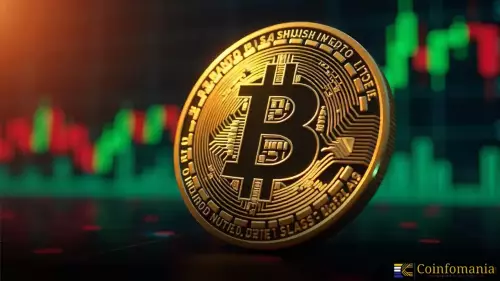 |
|
 |
|
 |
|
 |
|
 |
|
 |
|
 |
|
 |
|
 |
|
 |
|
 |
|
 |
|
 |
|
 |
|
 |
|
Cryptocurrency News Articles
Indonesia Grapples with Deepfakes: The Push for AI Regulation
Sep 12, 2025 at 03:55 pm
Indonesia intensifies its AI regulation push amid rising deepfake concerns. Deputy Minister Nezar Patria urges tech giants to provide free detection tools, aligning with global efforts for ethical AI use.

Indonesia Grapples with Deepfakes: The Push for AI Regulation
Indonesia is stepping up its efforts to regulate artificial intelligence (AI) as deepfake concerns escalate. The government is calling on tech giants to provide free tools to identify AI-generated content, mirroring global moves to balance innovation with public safety. It's a wild west out there, folks, and Indonesia is trying to wrangle the AI cowboys.
The Deepfake Dilemma
Nezar Patria, Indonesia’s deputy minister for communications and digital, recently highlighted a Sensity AI study showing a 550% surge in deepfake content over the last five years. “Detection capabilities shouldn’t be locked away behind private walls,” Patria emphasized, advocating for transparency tools on widely used platforms. Seems reasonable, right? If you're gonna play in the digital sandbox, share the toys.
Tech Giants on Notice
The Indonesian government believes that major platforms like Google and Meta possess the algorithms and computational power needed for large-scale detection systems. The missing piece? Public access. By offering these tools for free, companies could help users spot misinformation and manipulated videos before they go viral. The gauntlet has been thrown down. Will tech giants rise to the occasion, or will they keep those detection tools under lock and key?
Global Alignment
Indonesia's push aligns with international efforts. China already mandates watermarks on AI-generated content, and the European Union has proposed laws requiring clear labeling for synthetic media. Over 69 countries have introduced AI-related policies aimed at reducing misinformation. Jakarta's approach signals its intention to actively shape ethical AI use, both domestically and globally. They're not just talking the talk; they're walking the walk—or at least drafting the legislation.
The Detection Race
Experts note that detection technologies face an uphill battle. Generative adversarial networks (GANs) have made deepfake creation faster and cheaper. Detection systems must constantly evolve to keep pace with new manipulation techniques. Even DARPA is investing heavily in deepfake detection. Indonesia’s demand for free tools aims to bridge this accessibility gap. It's a digital arms race, and the stakes are high. Can detection keep up with creation?
A Balanced Approach
Indonesia is drafting new rules focused on ethical and responsible AI deployment, aiming to balance innovation with public protection. The success of these measures hinges on the response of tech giants and their willingness to prioritize public safety over commercial gain. It's a tightrope walk, balancing progress with prudence. Let's hope they don't fall off.
Personal Take
It seems to me that Indonesia's call for transparency and accessible detection tools is a necessary step. While AI offers incredible potential, the rise of deepfakes poses a real threat to public trust and information integrity. By pushing tech companies to share their resources, Indonesia is advocating for a more equitable and secure digital landscape. It’s not just about catching the bad guys; it’s about empowering the public to discern truth from fiction.
The urgency of the situation is underscored by the rapid advancement of deepfake technology. As generative AI becomes more accessible, the ability to create convincing forgeries will only increase. This makes it all the more critical to equip users with the tools they need to protect themselves from manipulation and deception. The Indonesian government's proactive approach is a commendable effort to address this growing challenge. Kudos to them for trying to keep things real in a world that’s increasingly fake.
The Bottom Line
As governments worldwide demand transparency in AI, Indonesia’s regulatory push adds weight to the argument that AI innovation must be balanced with safeguards against misuse. For now, the success of these measures will depend on how tech giants respond, and whether they are willing to place public safety ahead of commercial advantage. So, what’s it gonna be, tech giants? Are you in or are you out? The world is watching, and Indonesia is leading the charge. Let's hope for a future where we can still tell what's real from what's not. Otherwise, we're all just living in a deepfake, man!
Disclaimer:info@kdj.com
The information provided is not trading advice. kdj.com does not assume any responsibility for any investments made based on the information provided in this article. Cryptocurrencies are highly volatile and it is highly recommended that you invest with caution after thorough research!
If you believe that the content used on this website infringes your copyright, please contact us immediately (info@kdj.com) and we will delete it promptly.






























































